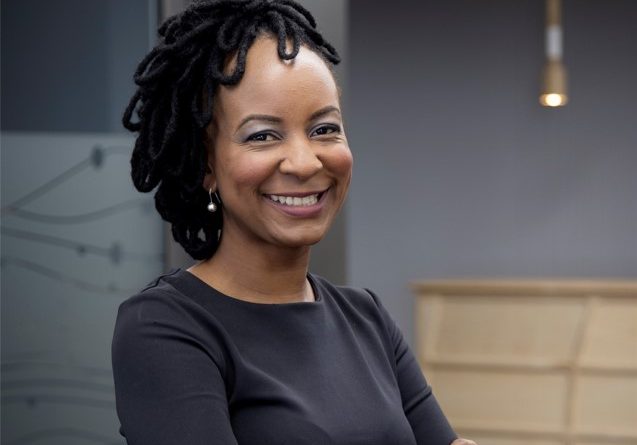In conversation with Besa Ruele, CEO of Hollard Life Solutions on overcoming self-doubt and lessons on leadership
According to Besa Ruele, CEO of Hollard Life Solutions, leadership is a responsibility, and leaders must actively work towards achieving greater diversity and empowerment within their organisations.
A survey conducted by PricewaterhouseCoopers (PwC) has found that women make up only 14% of the 329 Chief Executive Officers (CEOs) of listed companies in South Africa and that there are only 291 Chief Financial Officers (CFOs). This situation is especially glaring in the financial services sector, where only 30% of women hold executive leadership positions.
Ruele is among the few women in the country in finance who holds an executive position. She was part of the team involved in overseeing the creation of Hollard Life Solutions out of what were previously two separate business units. “This has been the most intense period of my career and continues to be a challenging yet rewarding process,” she said .
This year, as the country commemorates 65 years since 20 000 South African women of diverse races, age and religions marched to the Union Buildings in Pretoria to demand the abolition of suppressive pass laws, women continue to face many challenges. These are exacerbated by the Covid-19 pandemic, which has had a devastating effect on women’s careers and professional aspirations. McKinsey and LeanIn.Org found that 25 percent of women are considering downshifting their careers or even leaving the workforce altogether. Working mothers, women in senior management positions, and black women, in particular, are experiencing pressure. This is particularly prevalent in emerging economies.
Ruele argues that as there is already a deficit in the number of women participating in leadership roles at executive level, to have more women drop out of work may present other challenges in the future. “Companies need to do more to support and retain their female staff, by offering more tailored solutions to support women in managing the different roles they have to play, at home and in the workplace, especially given the pressures that come with working from home,” she said. “Greater flexibility, assistance with childcare, and normalising time off for family responsibilities is crucial. Furthermore, there has to be a deliberate strategy across the different industry sectors in South Africa to open opportunities for the participation of women in executive leadership roles for real change to happen.”
She urges women to be ready to seize opportunities and not to wait until they feel they have earned the step up a challenge that most women face on their way to the top.
“We need to be more confident in our abilities and grab these opportunities when they arise. We as women, myself included, tend to doubt ourselves and to put up our hands reluctantly or only when we know we meet 150% of the requirements for the job,” she says. “Men are the opposite and will grab any opportunity, with a view to challenging themselves and growing into any role.”
Both men and women can drive empowerment by providing support and guidance to women who show potential and by providing opportunities to grow female talent into leadership roles. As organisations become more diverse, change will come. “Having more female voices around the table will certainly colour the conversations differently,” Ruele said. “The impact of this will be that businesses will benefit from greater representation and from diverse voices that will make their decision making more robust. There is no doubt that diversity is a key ingredient of future success and a plausible way to enable the sustainability of businesses. More diverse organisations are able to tap into a more diverse market share. Research conducted by Deloitte on diversity and inclusion found that companies with an inclusive culture are six times more likely to be innovative.”
Women leaders have a particularly important role to play in this process as they have a better appreciation of the kind of support required for women to succeed, and so organisations should create environments in which women can flourish.
“Many a time I’ve moved forward career-wise only because of an invested boss pushing me, believing in my abilities. I am forever grateful for these bosses, but if I could advise my younger self, it would be to say believe in your abilities. We certainly need more women in leadership roles, more women to encourage one another and younger women to believe in themselves. Fear and self doubt are among the biggest stumbling blocks to achievement. If we can drop them, we will allow ourselves to fly,” Ruele says.
Ruele thinks it may come as a surprise to many that she admits to suffering from self-doubt. She credits engaged leaders for motivating her to take on more senior roles. Doubting themselves is, however, a common experience among women in leadership. KPMG research, for example, found that 75% of executive women admitted to experiencing imposter syndrome in their career, and 85% believed this was a common experience among women.
“I have tended to shy away from opportunities to move to the next level and to focus on what I am not doing right,” she says. Her strategy is to consciously remind herself of areas where things are going well – a process she calls self-checking – and to surround herself with a network of people who can support her in this regard and help her in checking herself to make sure she is not overly critical of herself.
She’s a believer in the merits of hard work and says that everyone can be a leader, regardless of their station in life.
“My view is that leadership is about owning and taking accountability of the roles and responsibilities we have, it’s a continual learning process and adopting and consciously living with a mindset of maintaining integrity at all times, regardless of the position one holds. It is in those seemingly small positions or levels, where we grow,” she says.




